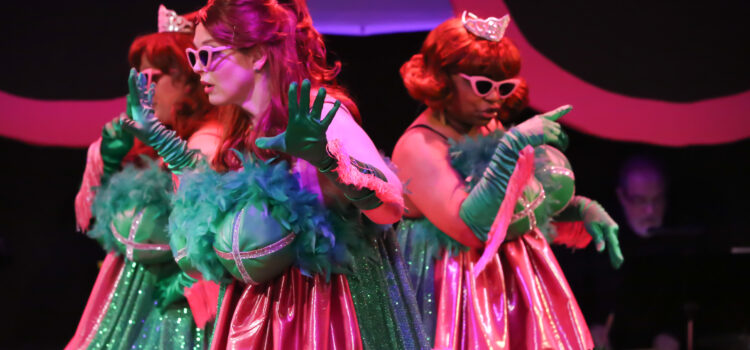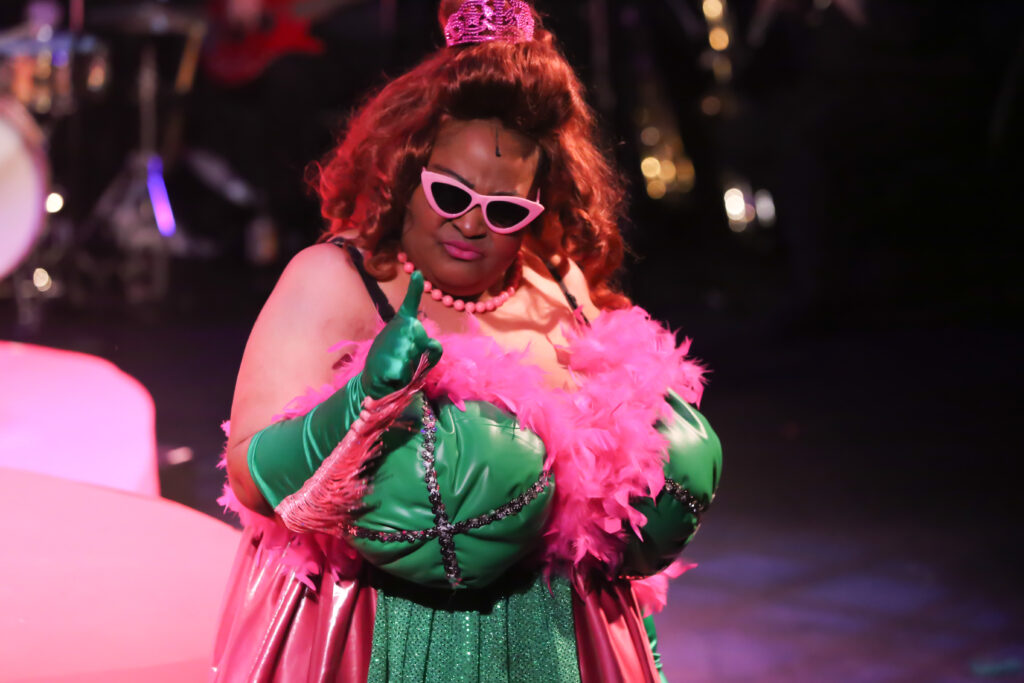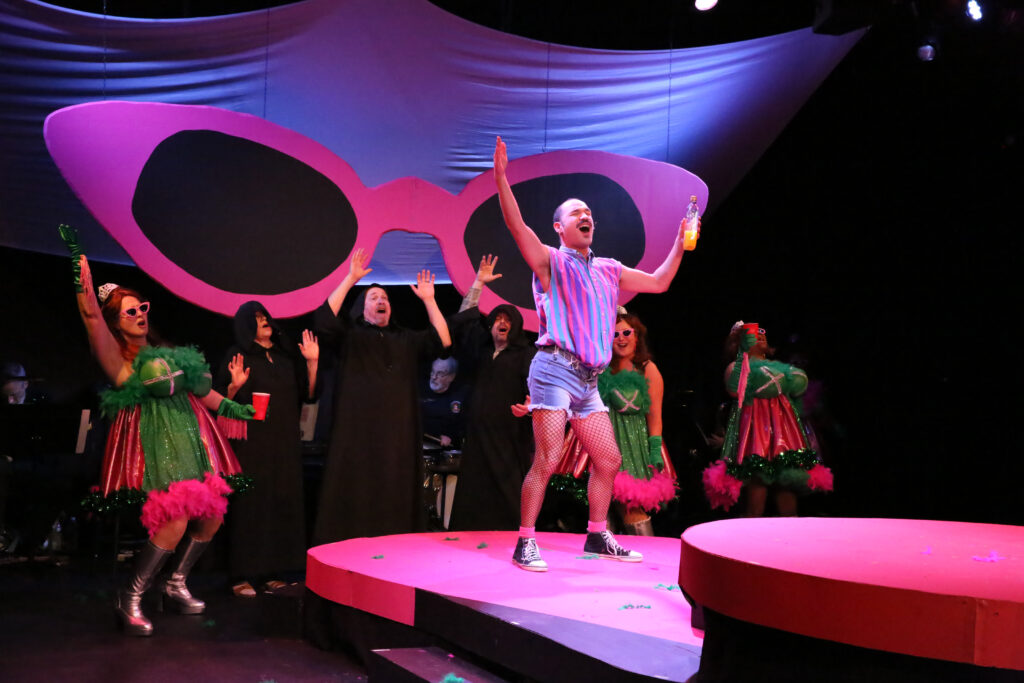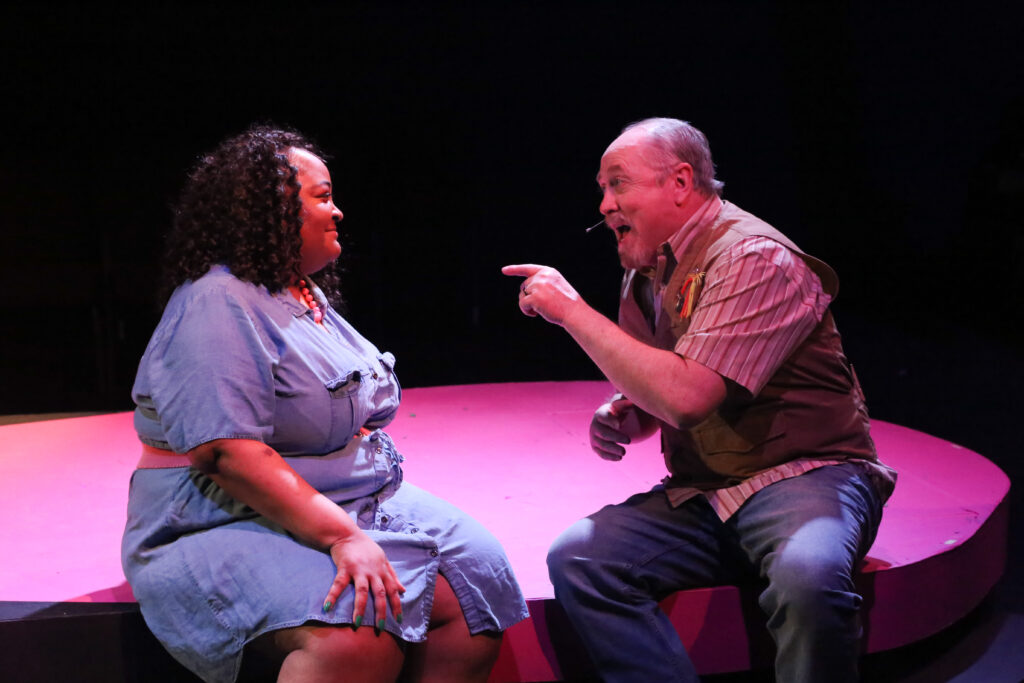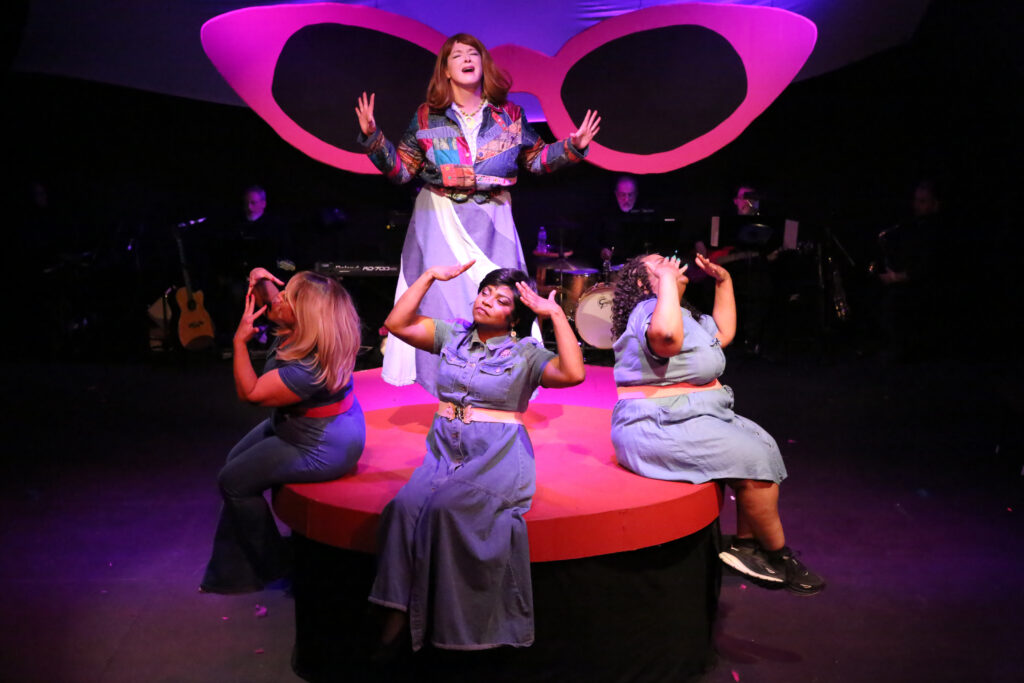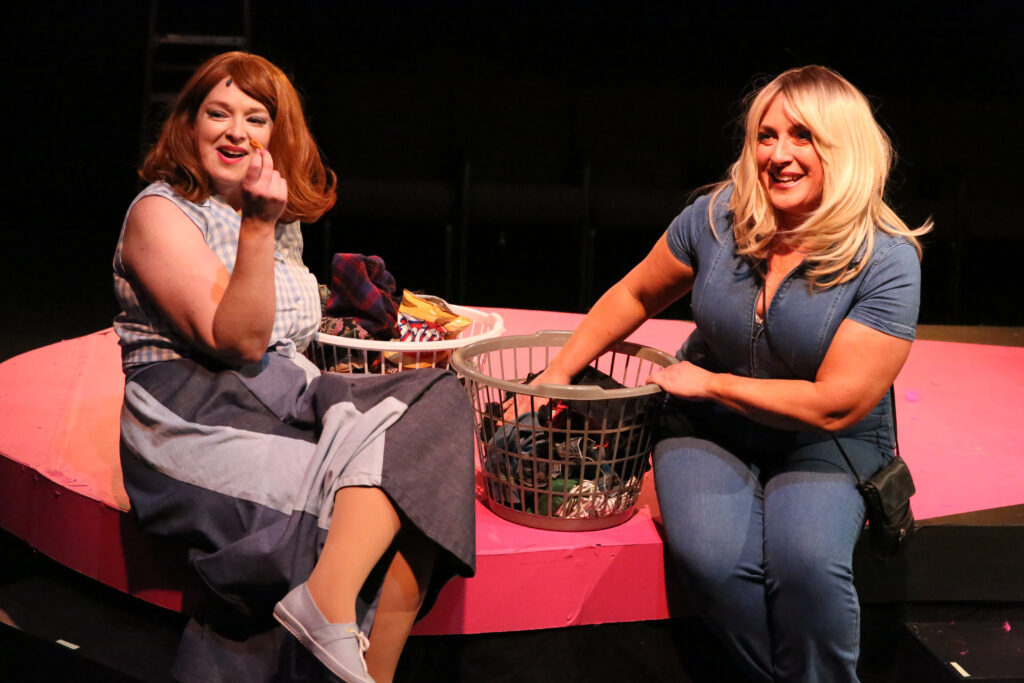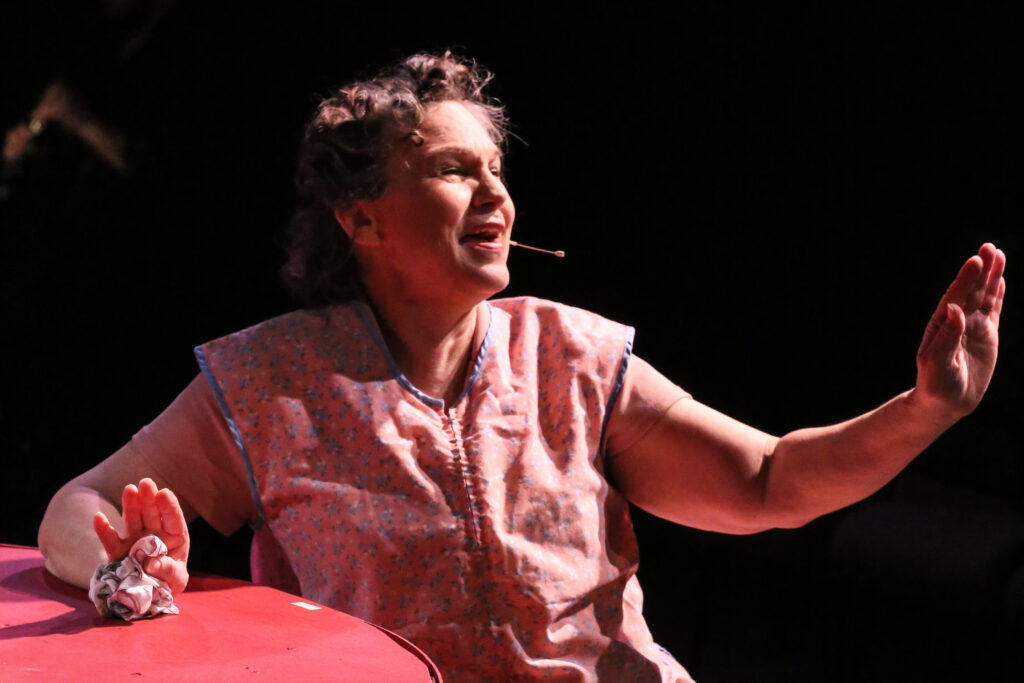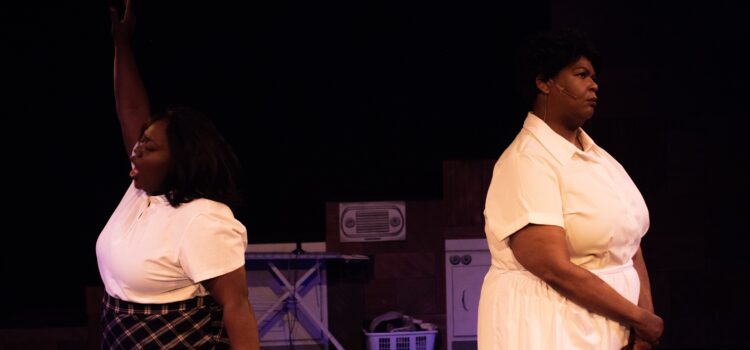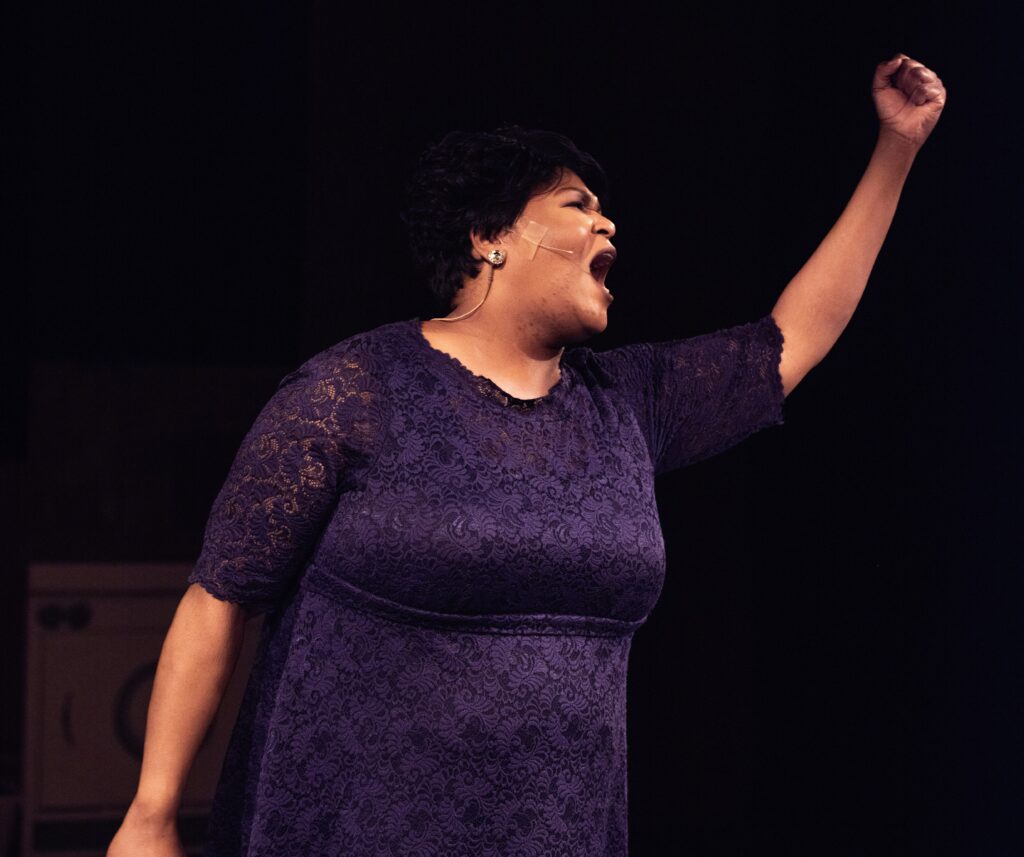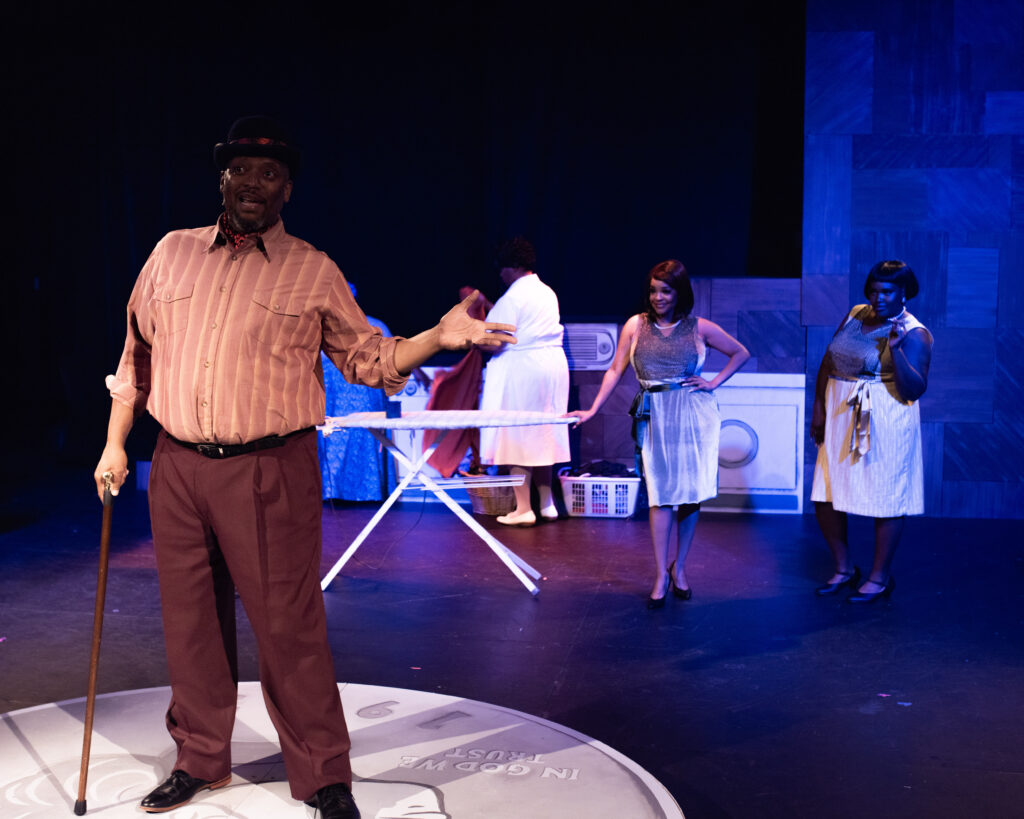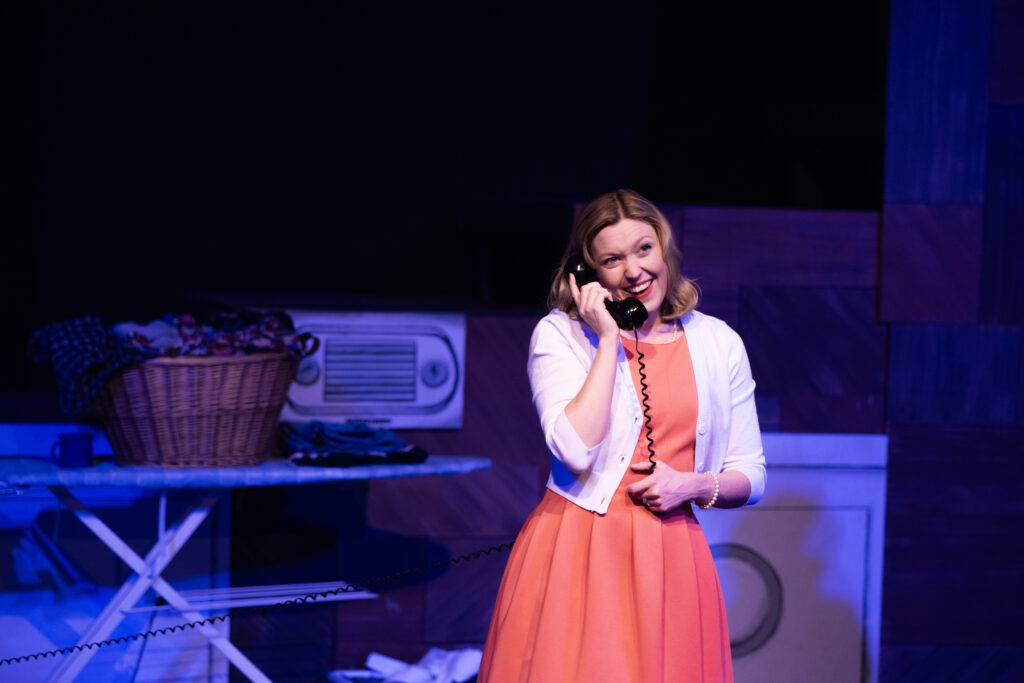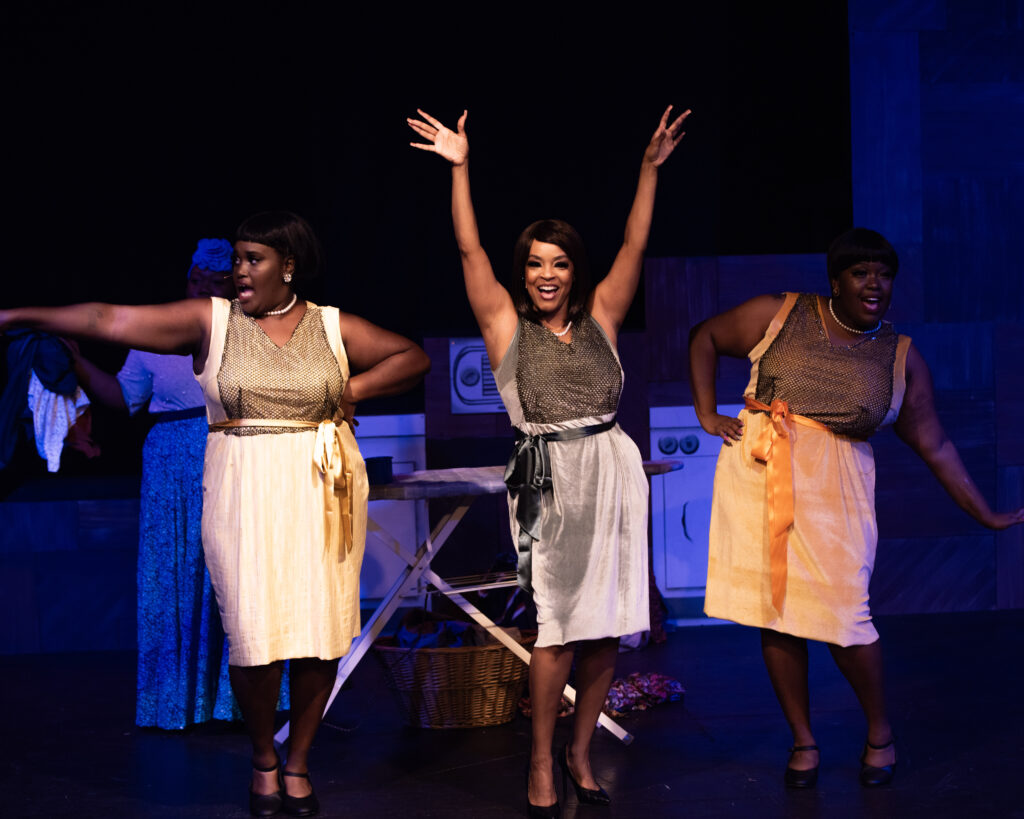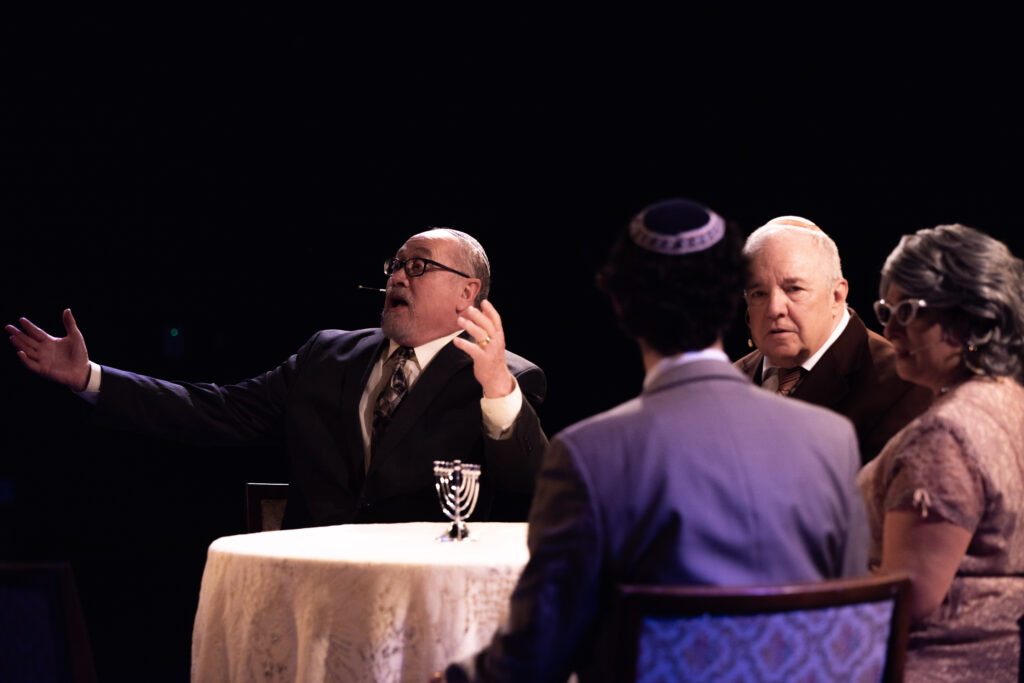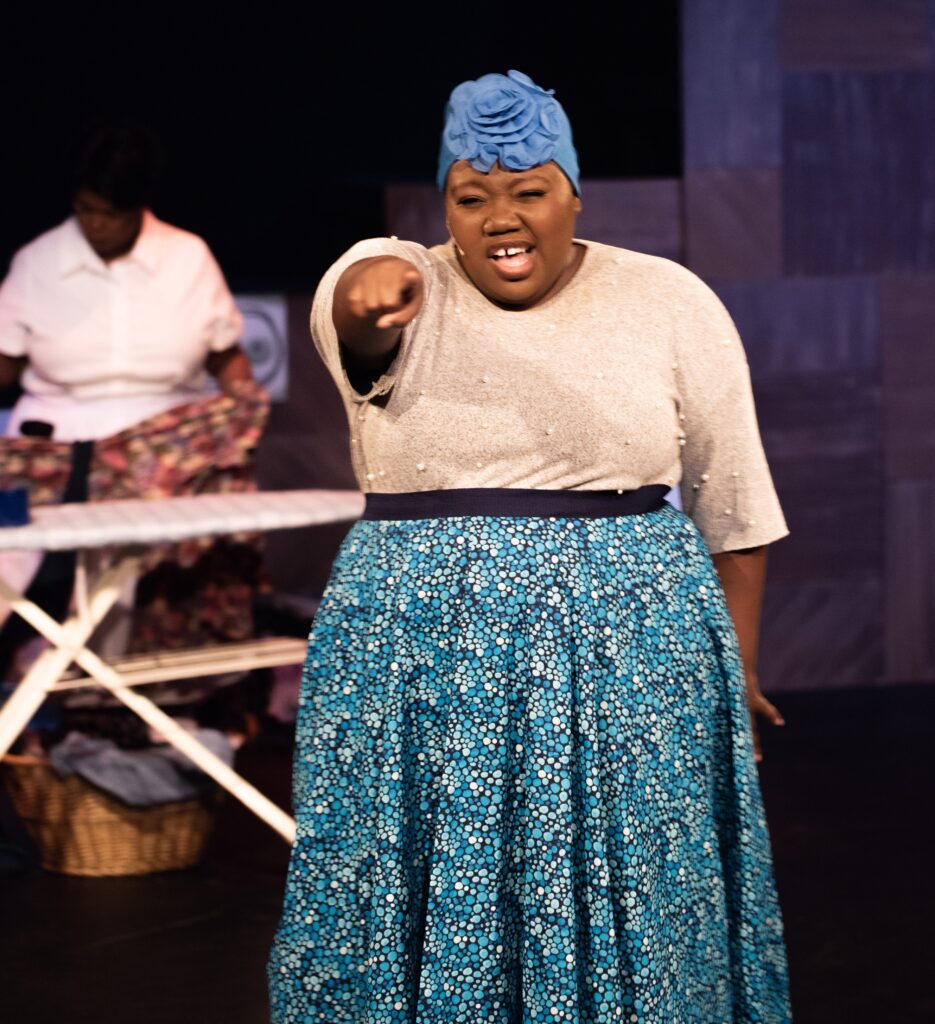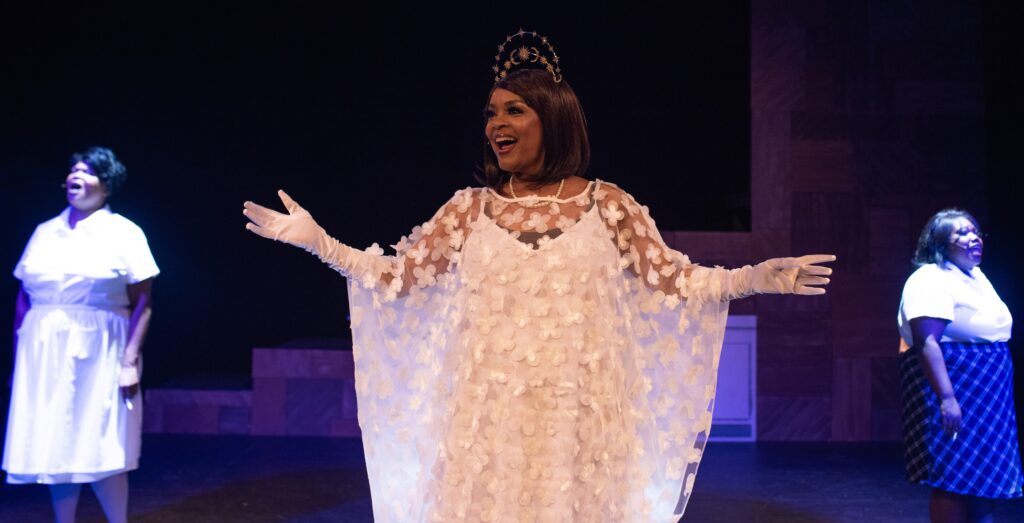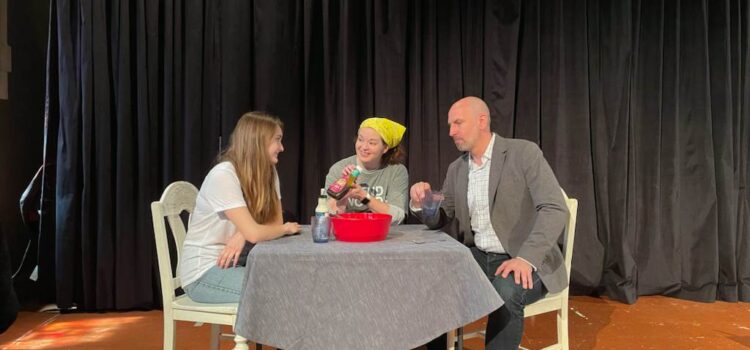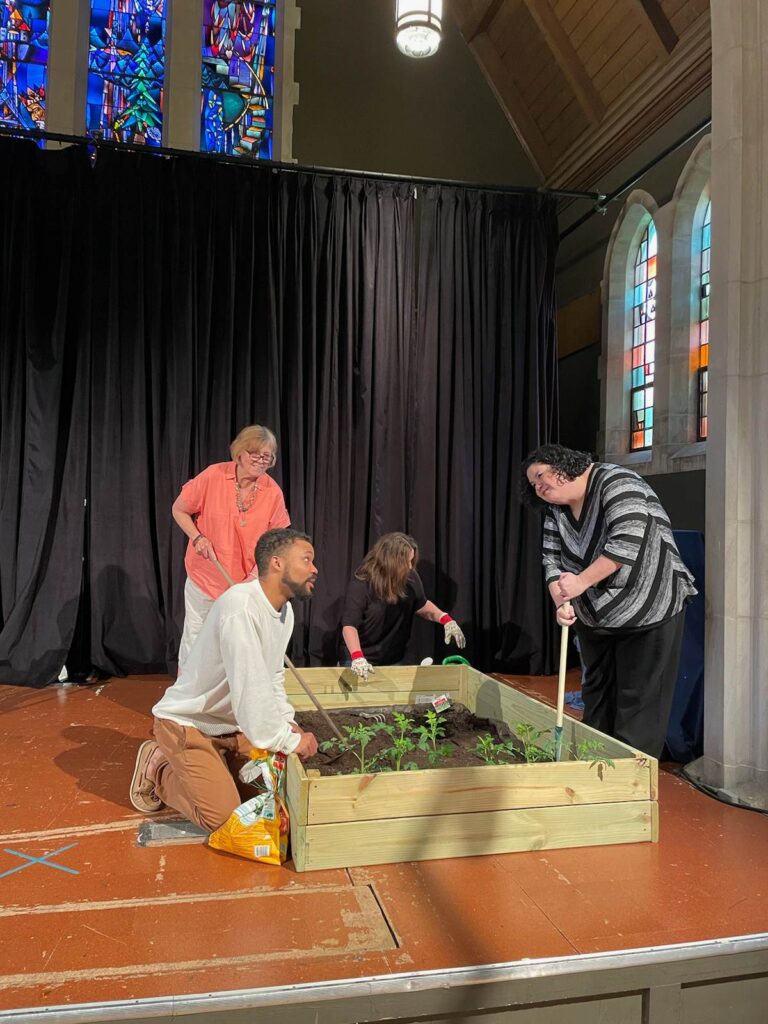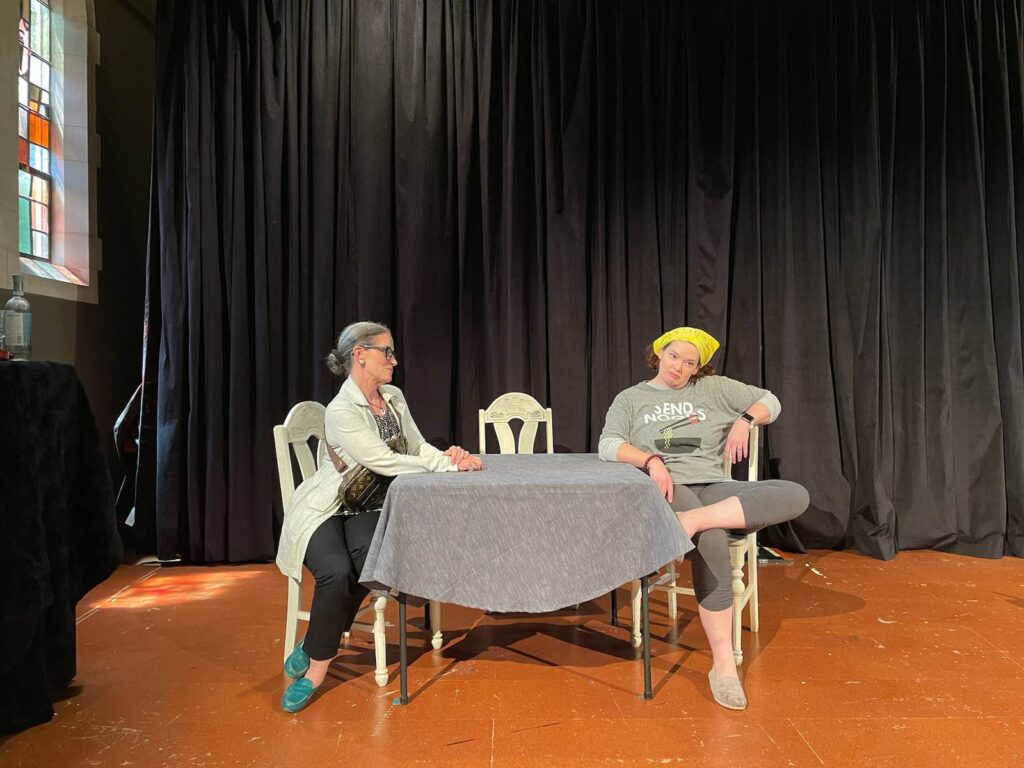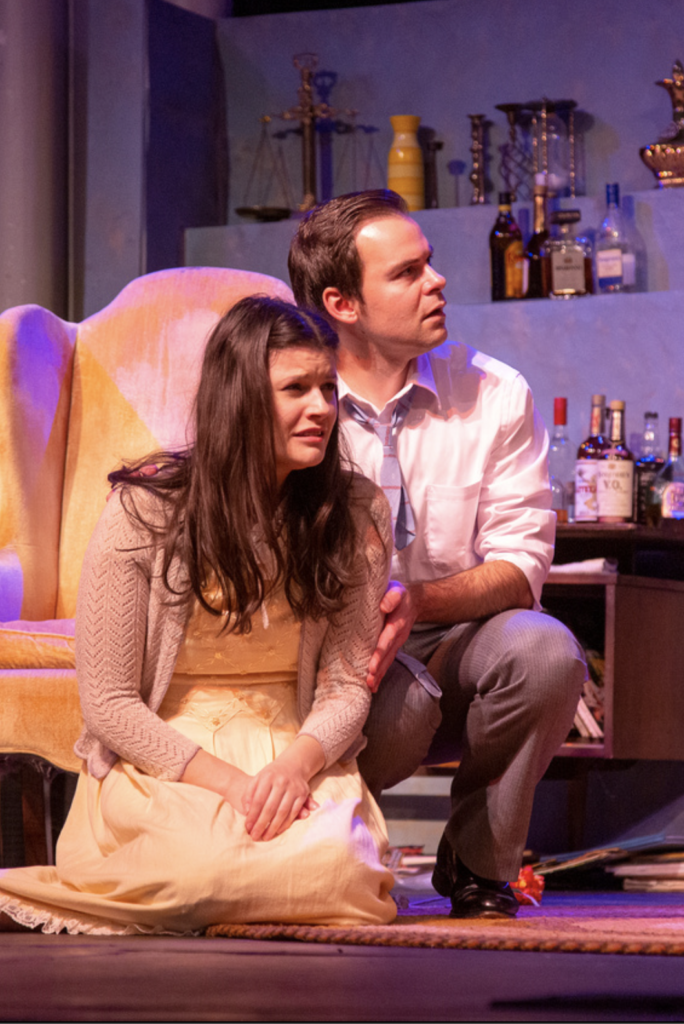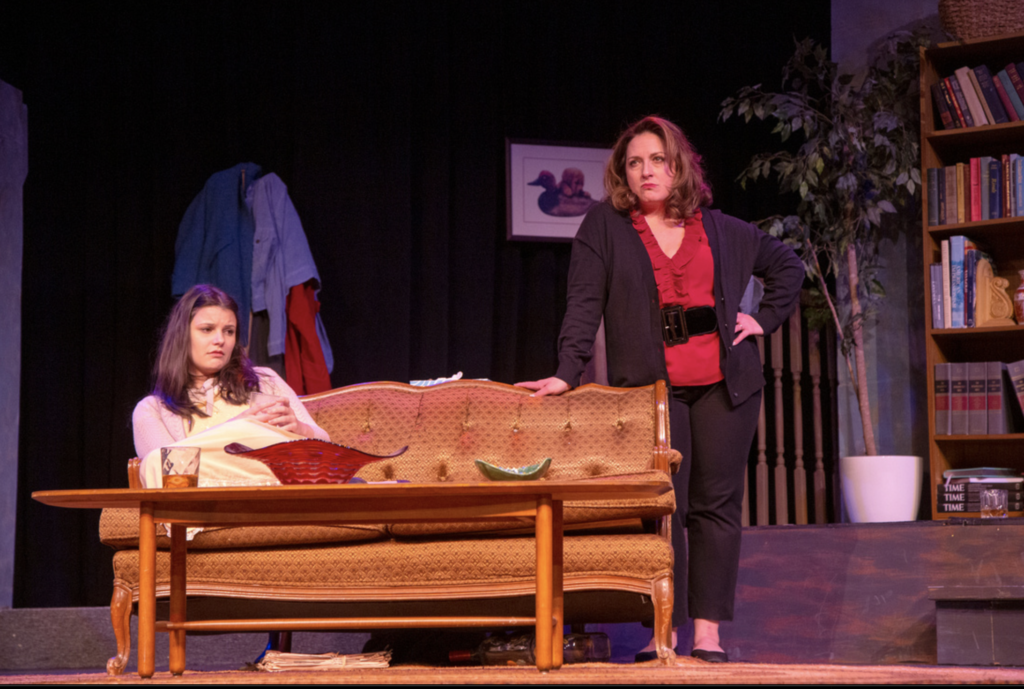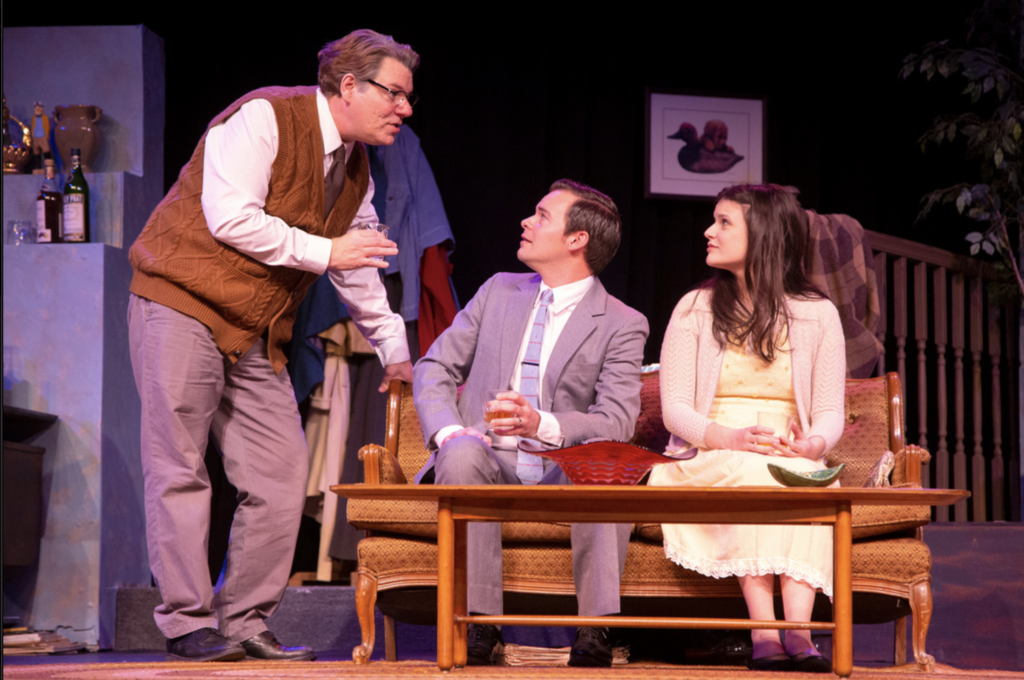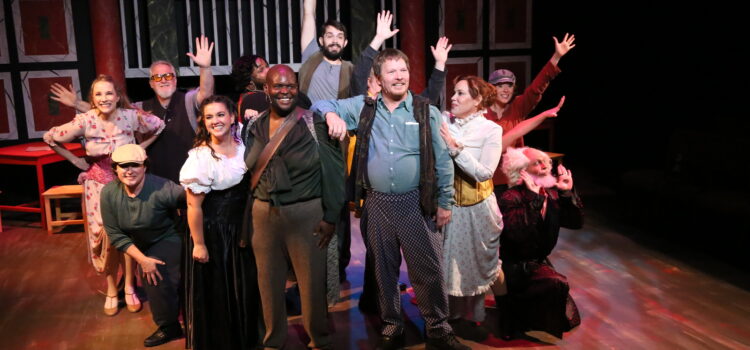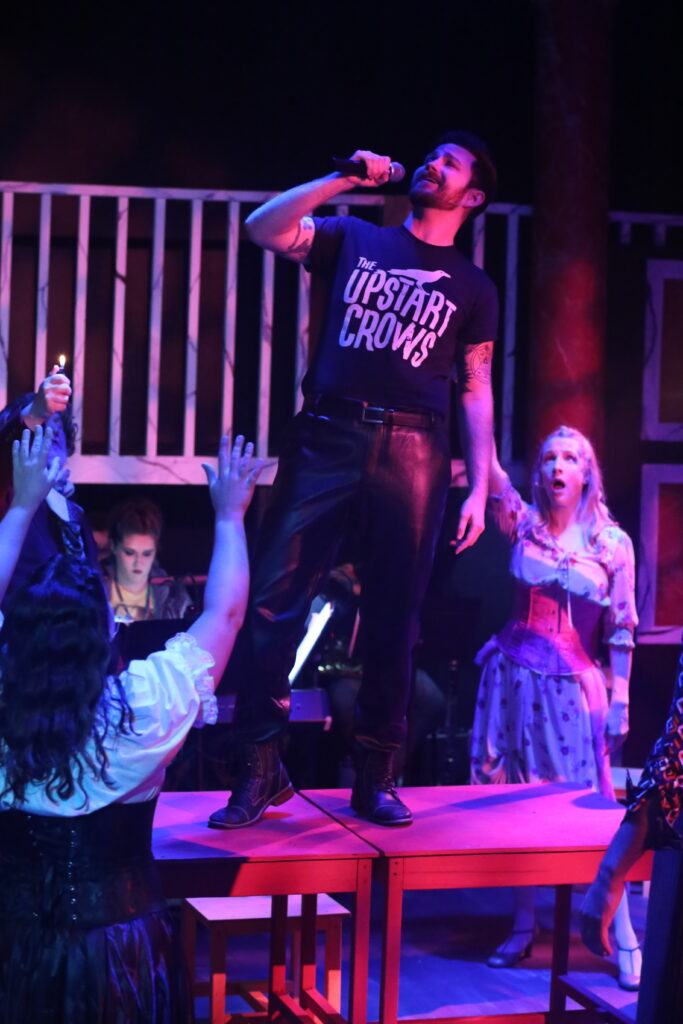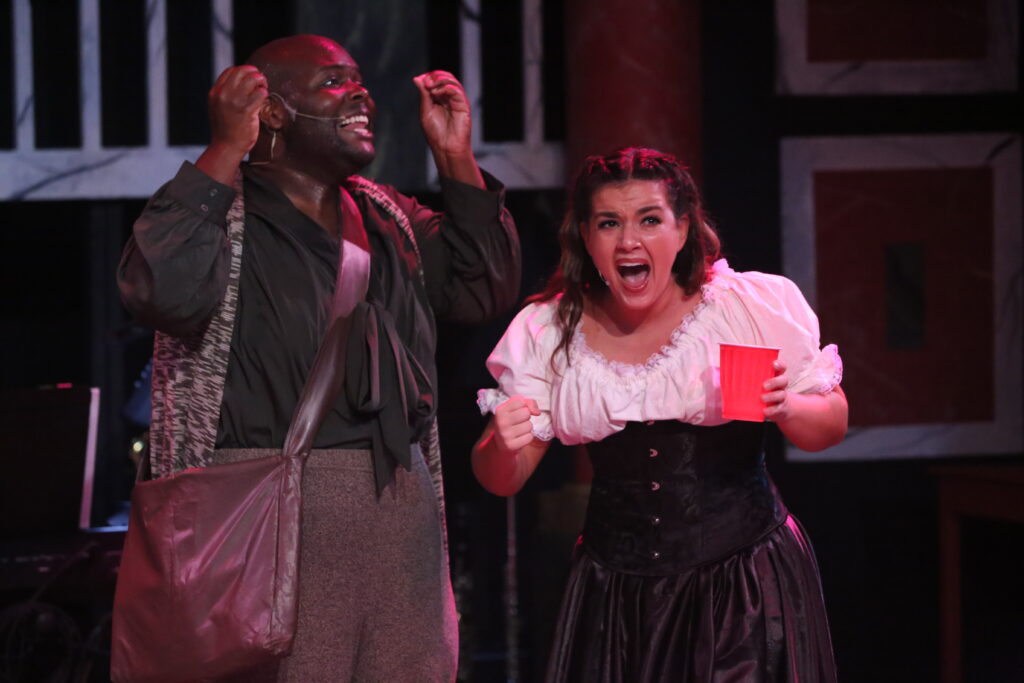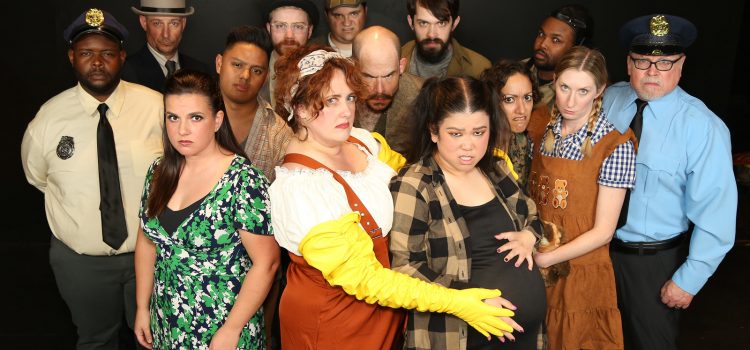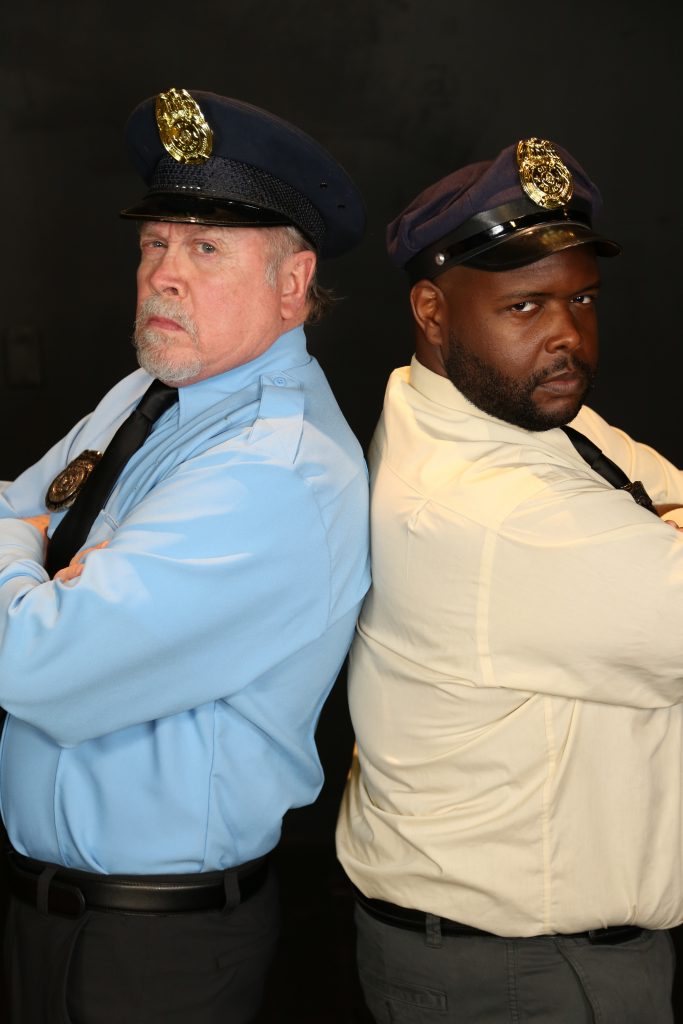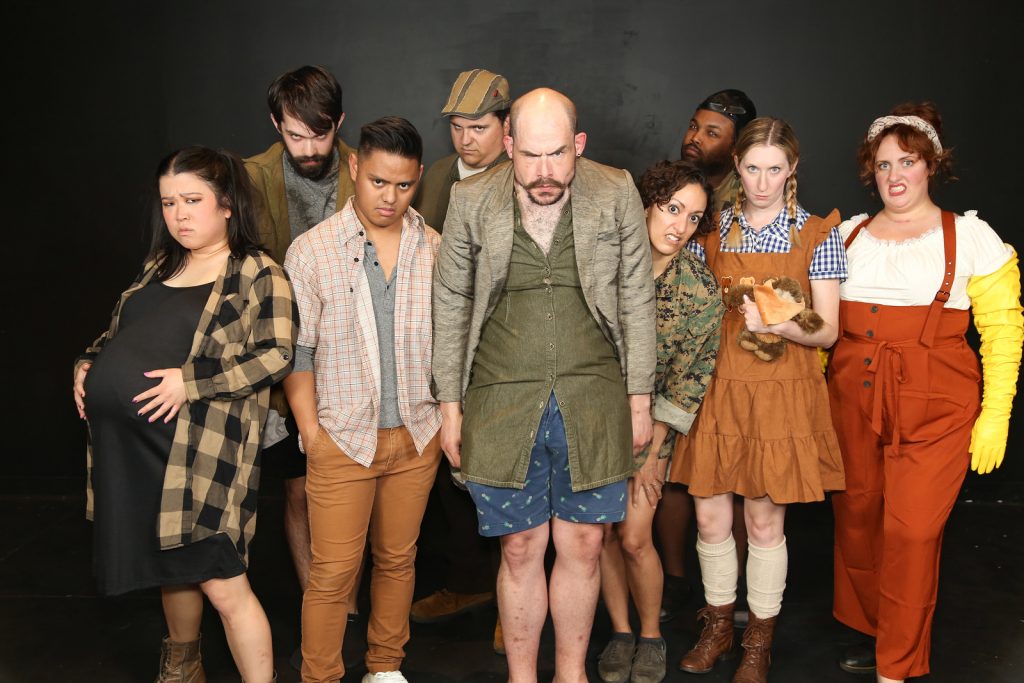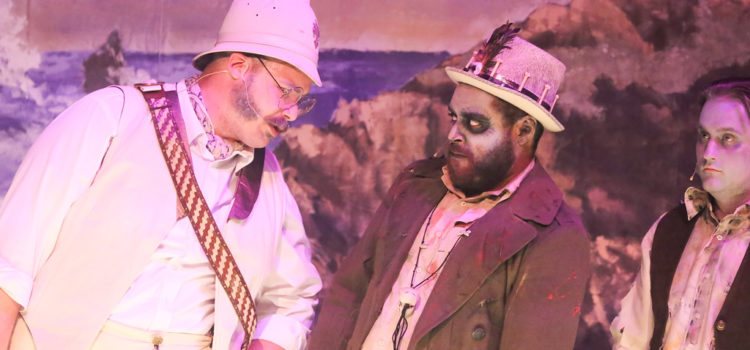By Lynn Venhaus
“Moonlight and love songs are never out of date” …”As Time Goes By”
Stephen Peirick and Mara Bollini act their hearts out in a complicated love story about damaged souls making a connection in Terence McNally’s perceptive “Frankie and Johnny in the Clair de Lune.”
McNally, who won five Tony Awards during a six-decade career and was nicknamed “The Bard of America,” had a keen ear for dialogue – the way ‘real’ people talk. Even if characters are New Yorkers, you can universally identify with their joys and sorrows.
Frankie, a waitress, and Johnny, a short-order cook, work at the same diner. After several weeks of mutual attraction, they finally hook up for a date that turns into a passionate all-nighter back at her apartment. Their sexual activity is heard, not seen, but discussed in detail, and some nudity is involved.
Their thought-provoking post conversations are full of sly observances, remarkable coincidences, laughter, explicit language – and need for sustenance, not only her craving a cold leftover meatloaf sandwich or using his knife skills to prepare a Western omelet.

Unfiltered Johnny is a loquacious fellow – even quotes Shakespeare – but there is some darkness hinted at, while Frankie is more guarded, not so quick to reveal her life story. It’s obvious, with their real ages 41 and 48, that their experiences include so-called baggage and battle scars, but what they choose to share is heartfelt.
This relatable working-class pair do not expect fairy tale fantasy endings, after failures and faults have piled up over the years, but wanting fulfillment instead of only sexual pleasure is brought up in conversation.
McNally, who died in 2020, also had a gift for creating a community, exchanging ideas and presenting ways to deal with change, as his plays “Master Class,” “Love! Valour! Compassion!” and “Mothers and Sons” demonstrate, as do his books for musicals “Ragtime,” “Kiss of the Spider Woman,” and “The Full Monty.”
In this hopeful yet realistic look at elusive love, he wants the audience to ponder if they could heal after expressing their feelings and make a stronger commitment despite the difficulties.
The play, celebrated in both its off-Broadway run in 1987 and later Broadway and revival, starred acting luminaries Kathy Bates and F. Murray Abraham, Michael Shannon and Audra McDonald, and Edie Falco and Stanley Tucci as the titular characters.
A much-maligned 1991 movie adaptation, directed by Garry Marshall, starred Michelle Pfeiffer and Al Pacino. It was criticized for the stars being “too attractive” to play ordinary roles, and was described as lacking depth.
The best thing about Stray Dog’s carefully crafted production is its intimacy, and that has much to do with the performances from two veteran actors who are brave enough to expose their vulnerabilities, with physicality, good comic timing and frankness.
Director Gary F. Bell approaches the mature-themed material in his customary straightforward manner, steadily and clear-eyed. He also designed suitable costumes for a casual date and lingerie.
Savvy sound designer Justin Been punctuates the evening with a fine selection of classical music, including Claude Debussy’s beloved “Clair de Lune,” which means “moonlight” in French.
The soothing, ethereal piano piece conjures up gentle imagery and sums up the couple’s longing. It’s a perfect coda for an emotional rollercoaster ride.

Johnny is smitten in a hopeless romantic way, wanting more than a one-night stand, and eager to rush in, which Frankie is wary of, for she is not so sure she’s ready for his intensity. Their push and pull are the crux of the two-act play.
Because we’re in the post-#MeToo era, and “no means no,” as it should, some of the actions are problematic (the play is set in the 1980s). If it was a contemporary piece written today, they would not have moved on to a second act, and I think concerns about Johnny’s attempted manipulation of Frankie would be raised.
So, there is that. She wanted him to leave, said so a couple times, and he wanted to stay. His directness seems more uncomfortable than persuasive. Women’s safety should always be at the forefront of storytelling in 2025. Therefore, this is a period piece that can get cringy 38 years later.
After that troublesome exchange, it appears that she willingly changed her mind because we would have had a very different outcome. As truths are tdivulged, more of a growing closeness can be felt.
Johnny’s desire for a genuine love connection and Frankie’s hesitant steps to trust again are moments of sweet tenderness – but that appearance of pressure that wound up being worked through took some suspension of belief, truth be told.
The two actors have worked together several times, including superbly as the iconic bickering married couple George and Martha in “Who’s Afraid of Virginia Woolf?,” which was staged at Stray Dog in 2023. There is little comparison to those dynamics..
Their ease with each other helps convey their loneliness, aspirations and fears. Peirick and Bollini, both likable performers, display comfortable chemistry.
This demanding two-hander requires a great deal of stamina and ‘heavy lifting,’ because they are on stage for the entire 2 hours and 15 minutes, so this accomplishment is commendable.

The creative team’s naturalistic designs are good assets to tell this comedy-drama. Bell also designed the set, a well-worn one-room studio walk-up in Manhattan, in the Hell’s Kitchen neighborhood. However, it can become claustrophobic over the course of a long night.
Tyler Duenow’s lighting design illuminates the pillow talk with different lamps or keeps everybody in the dark during the more ‘delicate’ moments. He also streams moonlight and the breaking dawn during the times they reference the moods and the music.
Stage managers Justin Been and his assistant Aasrith Veerapaneni keep things moving.
On one hand, “Frankie and Johnny in the Claire de Lune” is a product of its time. Its pragmatic look at relationships still offers a glimmer of hope. Overall, the characters resonate, largely due to the engaging efforts of Peirick and Bollini. In today’s vernacular, they play people who want to be seen and heard in a valuable way.
It’s still the same old story
A fight for love and glory
A case of do or die
The world will always welcome lovers
As time goes by,
— Herman Hupfield
Stray Dog Theatre presents “Frankie and Johnny in the Clair de Lune” June 5 through June 21 at the Tower Grove Abbey, 2336 Tennessee Avenue. The performances are Thursday through Saturday at 8 p.m., with special Sunday matinees at 2 p.m. on June 8 and 15. The show contains mature language, adult situations, flashing lights, discussion of abuse, and nudity. Viewer discretion is advised. For more information: straydogtheatre.org


Lynn (Zipfel) Venhaus has had a continuous byline in St. Louis metro region publications since 1978. She writes features and news for Belleville News-Democrat and contributes to St. Louis magazine and other publications.
She is a Rotten Tomatoes-approved film critic, currently reviews films for Webster-Kirkwood Times and KTRS Radio, covers entertainment for PopLifeSTL.com and co-hosts podcast PopLifeSTL.com…Presents.
She is a member of Critics Choice Association, where she serves on the women’s and marketing committees; Alliance of Women Film Journalists; and on the board of the St. Louis Film Critics Association. She is a founding and board member of the St. Louis Theater Circle.
She is retired from teaching journalism/media as an adjunct college instructor.


